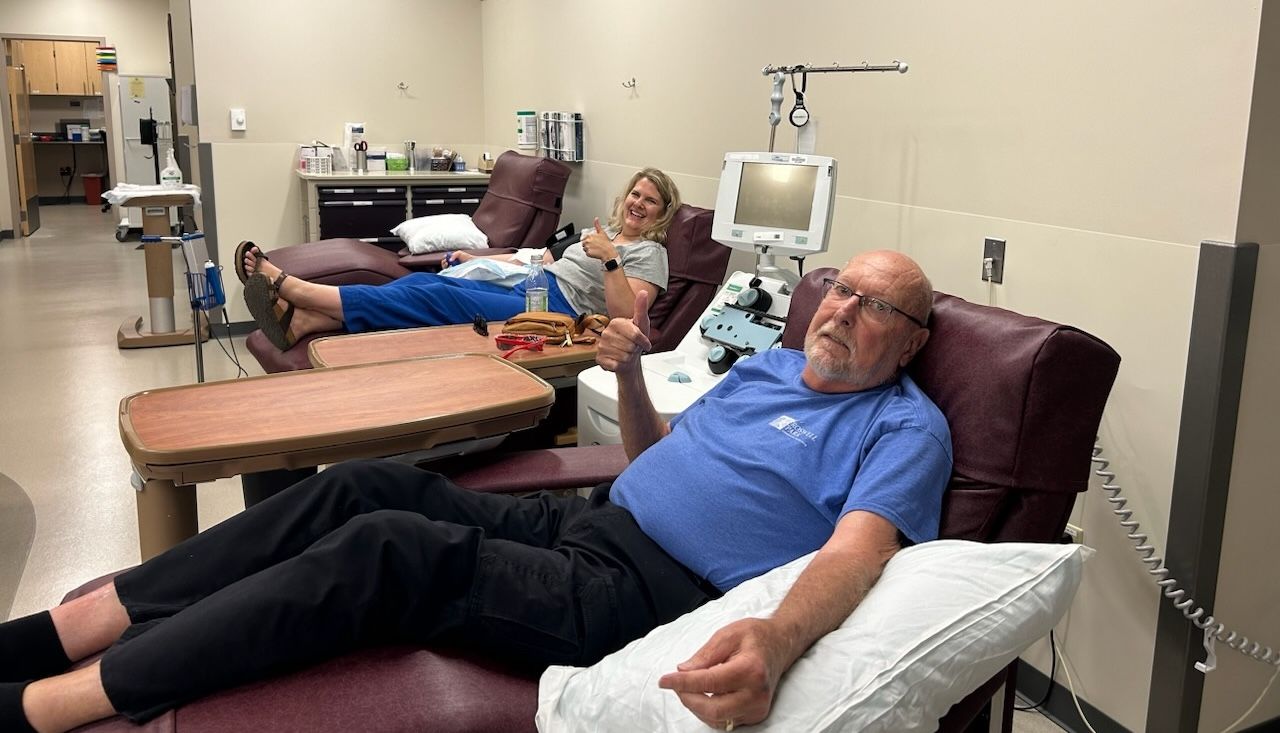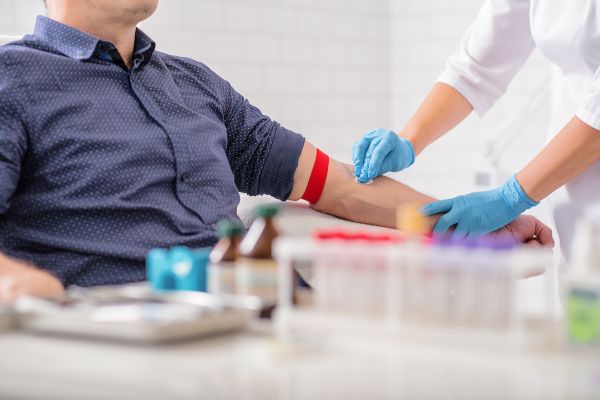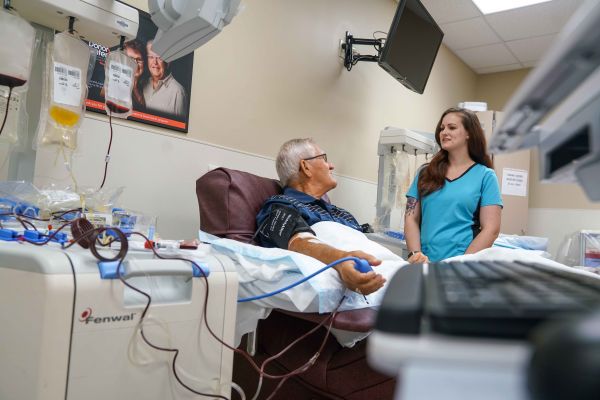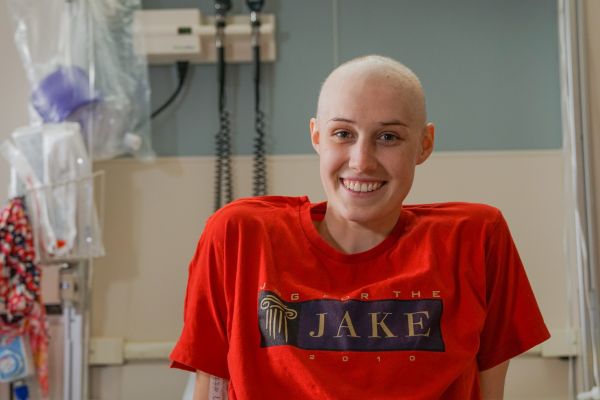Giving blood again can help cancer survivors' healing journey
For many people, giving blood is an important way of giving back — offering critical support to people who may be experiencing a serious health challenge. For cancer survivors, the ability to give blood after navigating through the mental and physical challenges of treatment can provide a sense of life returning to what it was before their diagnosis.
Recently, Roswell Park Comprehensive Cancer Center revised its donation guidelines to make it easier for cancer survivors to give blood — again or for the first time.
The new criteria reduce the length of time some survivors must wait after completing chemotherapy or radiation treatment from five years to just one year, and the wait time after surgery from one year to just two weeks, if cleared by their doctor. Survivors will still need to meet all other eligibility requirements. (People diagnosed with certain cancers or who are taking certain medications are still not able to donate, in keeping with federal regulations.)
The new changes amend a previously conservative Roswell Park policy on the length of time between cancer treatment and blood donation.
“There are some things that we absolutely cannot change, that we must adhere to, that are mandated by the FDA. Then there are a few things that can be structured by individual donor centers,” explains Maria Turner, former Roswell Park Donor Center marketing and communications manager. “We also follow guidelines set by the American Association of Blood Bankers and New York State.”
To protect both donors and recipients, the Food and Drug Administration has federal oversight of the collection and use of all blood products in the U.S. The FDA sets the general giving guidelines which apply to all blood collection centers, including the Red Cross, but may be moderately altered according to the administrative focus of an individual site.
Donor policy addresses safety for donors and recipients
To remove the risk of cancer cells potentially circulating in donated blood products, Roswell Park irradiates all units in a process that prevents cells from being able to replicate themselves.
“When we decided to change the wait time policy, we evaluated the literature on recovery post-chemotherapy. A 12-month timeline allowed for recovery. But recovery is more than normal laboratory values, it is about wellness and the transition back to before,” Joanne Becker, MD, former Roswell Park vice chair of Laboratory Medicine says.
Maria — a cancer survivor herself who has been helping other Roswell Park cancer survivors for 24 years — agrees that the new blood donor guidelines support healing and transition back to “normal.”
“More significant than just the black and white of these changes is what it means to a cancer patient,” she says. “Cancer survivors want to help. They want to give back because they feel so blessed to be doing better. I’ve had instances where I’ve had to turn someone away and it would break my heart because they really wanted to help and they weren’t able to.
“Our Roswell Park donor base is vast,” Maria adds. “Many of our own employees donate, as well as generous members of our Western New York community. But while the donor base is encompassing, the recipient is a Roswell Park patient.”
Schedule your donation today
All blood products donated at Roswell Park go directly to our patients.
Elation from a Roswell Park cancer survivor
Cancer survivor Jim Manhardt is elated about the change in blood donation rules. He started giving blood at Roswell Park when he was about 19 years old, because his seriously ill grandfather had received blood transfusions there.
“I started paying back what my grandfather got,” he explains. “I just got into the routine. I gave platelets for about two years, about 20 times, and donated whole blood three or four times a year.”
Jim had been donating blood at Roswell Park since 1966. He gave blood at Roswell Park regularly with his daughter, and then with both his daughter and granddaughter. “I always encourage anybody in my family who can give to give,” he says.
But a cancer diagnosis five years ago required him to stop. After undergoing 45 radiation treatments and a year and a half of hormone shots, he was required to wait five years before he could start donating again.
When his daughter learned of the Roswell Park’s new blood donor rules, Jim, now 79 and twice retired, called and made an appointment right away. After the long hiatus, he and his daughter came into the Donor Center on July 5 to restart what had been an important life routine before his diagnosis and treatment.
“I was so excited. The people are so nice, and they need my blood,” says Jim, a universal blood donor who has already made his next appointment for early September. “In general, it’s a good thing to talk about this shortage of O-negative and O-positive blood. It’s helping people.”
Maria says the new guidelines, which allow cancer survivors to donate blood sooner after completing treatment, are likely to have a profound impact on the healing journey.
“There are people who have been donating for many years, but because of a specific cancer diagnosis, they were required to wait up to five years to return. Coming back is meaningful to them on many levels, and there’s a feeling that ‘I’m healthy enough again to do this,’” she says.
“Going forward, in some cases, with the shortened wait time, we’re able to say ‘look, it’s just one year that you have to wait. We’ll see you in a year, and you can make your appointment now.’”



